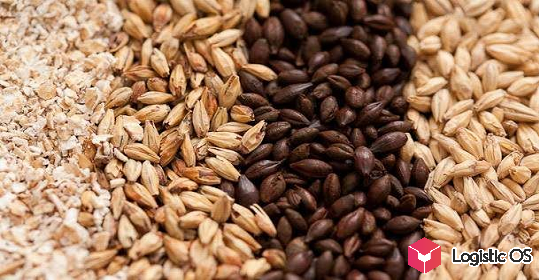The already introduced duties on the export of grain, corn and barley are just the first signs of the emergence of a permanent floating duty mechanism.
According to the Minister of Economic Development of Russia Maxim Reshetnikov, the duties already introduced to date do not sufficiently stimulate grain producers to send their products to the domestic market.
The duty on wheat from 15 February will be 25 euros per ton, and from 1 March — 50 euros per ton; for corn and barley — 25 and 10 euros per ton, respectively. And all this is only when the main grain crops are sold within the quota of 17.5 million tons. If it is exceeded, you will have to pay a duty of 30% of the customs value.
But since all these duties were introduced only for a period until June 30, many manufacturers simply «hid» and are waiting for the restrictions to be lifted. Precisely in order to combat this phenomenon, from April 1 it is planned to introduce a permanent duty on grain exports.
How will the new fee be calculated?
Maxim Reshetnikov promised that the formula will be withdrawn by March 1. For this purpose, it is planned to create a special committee, which should include, in addition to officials, representatives of exchanges and market participants themselves.
According to the minister, this entire mechanism will play the role of a «buffer» that softens the impact of the world market on the Russian market. In particular, weaken the fluctuations in world grain prices and prevent them from being transferred to domestic prices.
In any case, the size of the duty should be floating. For this, it is planned to use a link to exchange prices. For example, for wheat, it is planned to use a rate of 70% of the difference between the contract price and the $ 200 “skipping line”. That is, selling a ton of wheat for $ 300, you have to pay $ 70, and $ 400 for $ 140.
In addition, the skipping line itself (those same $ 200) can be adjusted. However, it will most likely be changed rarely (no more than 1-2 times a year).
Why are manufacturers unhappy with the new duty?
First, because it is ruinous. Andrei Sizov, director of the Sovekon analytical center, has repeatedly stated that such duties can lead to the ruin of many companies and farms.
Secondly, the fact that the government wants to come up with some clever formula with many floating values makes market participants even less happy. In this case, the duty can «jump» every day, and therefore it will be very difficult to conclude contracts, calculate your budget. In general, the market will become unstable and unattractive for investors.
In this regard, producers would be happy if the Ministry of Economic Development and Trade established a single fixed duty on all types of grain (for example, 6.5% of the customs value) and this has already «calmed down».
But such a scenario is unlikely, since, according to Reshetnikov, it is even planned to create its own Russian grain trading exchange and regulate prices with its help.
It is planned that in the near future three government resolutions will be adopted at once:
— About the registration of export contracts.
— On the introduction of a floating duty.
— About refunds to manufacturers.
The latter means that all the collected funds will not be sent to the budget, but will be distributed among agricultural enterprises.
But how much this will help them get out of the crisis into which they are being driven by the “new rules of the game” is difficult to say.

